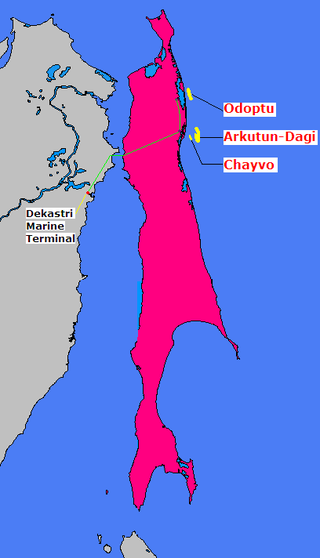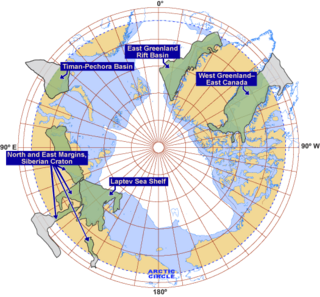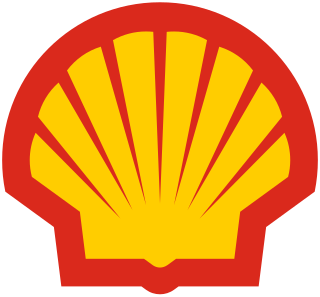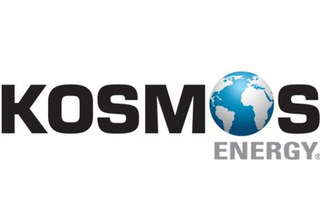
The Sakhalin-I project, a sister project to Sakhalin-II, is a consortium for production of oil and gas on Sakhalin Island and immediately offshore. It operates three fields in the Okhotsk Sea: Chayvo, Odoptu and Arkutun-Dagi.

TotalEnergies SE is a French multinational integrated energy and petroleum company founded in 1924 and is one of the seven supermajor oil companies. Its businesses cover the entire oil and gas chain, from crude oil and natural gas exploration and production to power generation, transportation, refining, petroleum product marketing, and international crude oil and product trading. TotalEnergies is also a large-scale chemicals manufacturer.
West Qurna is one of Iraq's largest oil fields, located north of Rumaila field, 65 km northwest of Basra. West Qurna is believed to hold 43 billion barrels of recoverable reserves – making it one of the biggest oil fields in the world. Until 2009, the field was closed to Western firms.

PJSC Rosneft Oil Company is a Russian integrated energy company headquartered in Moscow. Rosneft specializes in the exploration, extraction, production, refining, transport, and sale of petroleum, natural gas, and petroleum products. The company is controlled by the Russian government through the Rosneftegaz holding company. Its name is a portmanteau of the Russian words Rossiyskaya neft.

APA Corporation is the holding company for Apache Corporation, an American company engaged in hydrocarbon exploration. It is organized in Delaware and headquartered in Houston. The company is ranked 431st on the Fortune 500.
Kashagan Field is an offshore oil field in Kazakhstan's zone of the Caspian Sea. The field, discovered in 2000, is located in the northern part of the Caspian Sea close to Atyrau and is considered the world's largest discovery in the last 30 years, combined with the Tengiz Field. When discovered, it was the second largest oil field in the world.
Azeri–Chirag–Gunashli or Azeri–Chirag–Deepwater Gunashli is a complex of oil fields in the Caspian Sea, about 120 kilometres (75 mi) off the coast of Azerbaijan. It consists of the Azeri and Chirag oil fields, and the deepwater portion of the Gunashli oil field. An overall estimate of the area of the development is 432.4 square kilometres (167.0 sq mi). It is developed by the Azerbaijan International Operating Company, a consortium of international oil companies, and operated by BP on behalf of the consortium. The ACG fields have estimated recoverable reserves of about 5 to 6 billion barrels of petroleum. Peak oil production of 835,000 barrels per day (132,800 m3/d) was reached in 2010, however by the first quarter of 2022 production had declined to 434,000 barrels per day (69,000 m3/d), or about one-half of peak value. As of 2021, ACG oil accounted for 95% of all Azerbaijani oil exports.

Exploration for petroleum in the Arctic is expensive and challenging both technically and logistically. In the offshore, sea ice can be a major factor. There have been many discoveries of oil and gas in the several Arctic basins that have seen extensive exploration over past decades but distance from existing infrastructure has often deterred development. Development and production operations in the Arctic offshore as a result of exploration have been limited, with the exception of the Barents and Norwegian seas. In Alaska, exploration subsequent to the discovery of the Prudhoe Bay oilfield has focussed on the onshore and shallow coastal waters.

QatarEnergy, formerly Qatar Petroleum (QP), is a state owned petroleum company of Qatar. The company operates all oil and gas activities in Qatar, including exploration, production, refining, transport, and storage. The President & CEO is Saad Sherida al-Kaabi, Minister of State for Energy Affairs. The company's operations are directly linked with state planning agencies, regulatory authorities, and policy making bodies. Together, revenues from oil and natural gas amount to 60% of the country's GDP. As of 2018 it was the third largest oil company in the world by oil and gas reserves. In 2022, the company had total revenues of US$52bn, a net income of US42.4bn, and total assets of US$162bn. In 2021, QatarEnergy was the fifth largest gas company in the world.

ExxonMobil Corporation is an American multinational oil and gas corporation and the largest direct descendant of John D. Rockefeller's Standard Oil. The company, which took its present name in 1999 per the merger of Exxon and Mobil, is vertically integrated across the entire oil and gas industry, and within it is also a chemicals division which produces plastic, synthetic rubber, and other chemical products. ExxonMobil is headquartered near the Houston suburb of Spring, Texas, though officially incorporated in the U.S. state of New Jersey.

The natural gas in Qatar covers a large portion of the world supply of natural gas. According to the Oil & Gas Journal, as of January 1, 2011, reserves of natural gas in Qatar were measured at approximately 896 trillion cubic feet ; this measurement means that the state contains 14% of all known natural-gas reserves, as the world's third-largest reserves, behind Russia and Iran. The majority of Qatar's natural gas is located in the massive offshore North Field, which spans an area roughly equivalent to Qatar itself. A part of the world's largest non-associated, natural-gas field, the North Field, is a geological extension of Iran's South Pars / North Dome Gas-Condensate field, which holds an additional 450 trillion cubic feet of recoverable natural-gas reserves.

Shell plc is a British multinational oil and gas company headquartered in London. Shell is a public limited company with a primary listing on the London Stock Exchange (LSE) and secondary listings on Euronext Amsterdam and the New York Stock Exchange. A core component of Big Oil, Shell is the second largest investor-owned oil and gas company in the world by revenue, and among the world's largest companies out of any industry.
Ukraine has been estimated to possess natural gas reserves of over 670 billions cubic meters (in 2022), and in 2018 was ranked 26th among countries with proved reserves of natural gas. Its total gas reserves have been estimated at 1.870 trillion cubic meters. In 2021, Ukraine produced 19.8 billion cubic meters (bcm or Gm3) of natural gas. To satisfy domestic demand of 27.3 bcm that year, Ukraine relied on gas imports (2.6 bcm) and withdrawal from underground storage (4.9 bcm). Winter demand can reach 150 mcm per day. To meet domestic demand, Ukraine plans to increase domestic natural gas output to 27 bcm.
The Sakhalin-3 project is an oil and gas development in Sakhalin Island, Russia. It includes four blocks containing 5.1 billion barrels of crude oil and 46 trillion cubic feet of natural gas.

The East-Prinovozemelsky field is a gigantic undeveloped Arctic oil and gas field located in the South Kara basin of the continental shelf of Russia, in the South Kara Sea between the Yamal Peninsula and Novaya Zemlya island. It is the continuation of the continental West Siberian hydrocarbon province.
A floating liquefied natural gas (FLNG) facility is a floating production storage and offloading unit that conducts liquefied natural gas (LNG) operations for developing offshore natural gas resources. Floating above an offshore natural gas field, the FLNG facility produces liquefied stores and transfers LNG at sea before carriers ship it directly to markets.

The Vaca Muerta Formation, commonly known as Vaca Muerta, is a geologic formation of Late Jurassic to Early Cretaceous age, located in the Neuquén Basin in northern Patagonia, Argentina. It is well known as the host rock for major deposits of shale oil and shale gas.
The East Natuna gas field is a large natural gas field located in the South China Sea off northern Natuna Island, Indonesia. It is within the disagreed area claimed by China.

Kosmos Energy is an American upstream oil company founded and based in Dallas, Texas. While previously incorporated in Bermuda, Kosmos has reincorporated in Delaware. The company holds production and development operations offshore Ghana, Equatorial Guinea, and Gulf of Mexico, while holding a development project offshore Mauritania and Senegal, and exploration licenses offshore Namibia, São Tomé and Príncipe and Suriname. It was previously involved in exploration offshore Morocco and Western Sahara. It discovered the Jubilee oil field off the coast of Ghana and the cross-border Tortue gas field offshore Mauritania and Senegal. Kosmos was the focus of a documentary Big Men that followed the company as it worked to establish the Jubilee oil field in Ghana.
ExxonMobil, an American multinational oil and gas corporation presently based out of Texas, has had one of the longest histories of any company in its industry. A direct descendant of John D. Rockefeller's Standard Oil, the company traces its roots as far back as 1886 to the founding of the Vacuum Oil Company, which would become part of ExxonMobil through its own merger with Mobil during the 1930s. The present name of the company comes from a 1999 merger of Standard Oil's New Jersey and New York successors, which adopted the names Exxon and Mobil respectively throughout the middle of the 20th century. Because of Standard Oil of New Jersey's ownership over all Standard Oil assets at the time of the 1911 breakup, ExxonMobil is seen by some as the definitive continuation of Standard Oil today.












